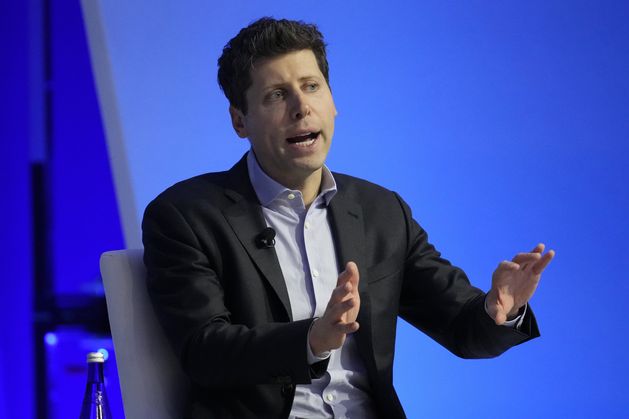The move comes after Ireland’s Data Protection Commissioner (DPC) asked Meta to “pause” the rollout of its AI services in Europe, due to concerns over how it would gather information from users.
‘We’re improving the model’s ability to detect and refuse certain content’
OpenAI, whose CEO is Sam Altman, unveiled the voice option at a product launch event in May for GPT-4o, an updated version of its GPT-4 model that is better at handling text, audio and images in real time.
In a statement, OpenAI said it had originally intended to roll out the voice feature to a small group of paid ChatGPT Plus subscribers in late June, but decided it needs another month to “reach our bar to launch”.
“We’re improving the model’s ability to detect and refuse certain content,” the company said on Tuesday.
“We’re also working on improving the user experience and preparing our infrastructure to scale to millions while maintaining real-time responses.”
Scarlett Johansson demanded one of the ChatGPT voices be removed for sounding too much like her. Photo: Getty
The delay represents a possible setback for OpenAI as it works to stay ahead of an increasingly crowded field of AI rivals.
The company had introduced a more limited option for ChatGPT to talk back to users last year, but the new feature promised to be faster and pair with powerful image-recognition capabilities to turn the chatbot into a far more useful and dynamic conversational partner.
At the launch event, OpenAI employees on stage a showed off ChatGPT responding almost instantly to such requests as solving a maths problem on a piece of paper placed in front of a researcher’s smartphone camera.
Some viewers likened the tool to the AI virtual assistant in the 2013 film Her, voiced by actress Scarlett Johansson.
She later demanded one of the ChatGPT voices be removed for sounding too much like her.
Apple said it will not release its AI upgrades to iPhones and Macs in Europe
On Tuesday, OpenAI said it plans to roll out the voice feature to all of its paid subscribers in the autumn.
OpenAI said it is “also working” on releasing video and screen-sharing features that the company demonstrated during its May event.
The company said it will let users know more about the timing for those features in the future.
As a result, it’s likely when the voice option does become available to select paid users in the next month, its capabilities will be more limited than what was demonstrated at the event.
For example, the chatbot will not be able to access a computer-vision feature that would let it offer spoken feedback on a user’s dance moves simply by using the smartphone’s camera.
Separately, Apple has said that it will not release its recently-announced AI upgrades to iPhones and Macs in Europe because of uncertainty over regulation in the area.
The company’s ‘Apple Intelligence’ software formed the central part of its Worldwide Developer Conference sales event earlier this month.
Europe has continued to crack down on invasive tech companies, charging both Apple and Microsoft for potential anti-competitive violations in the past week.

